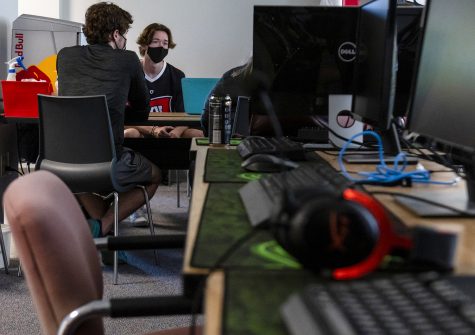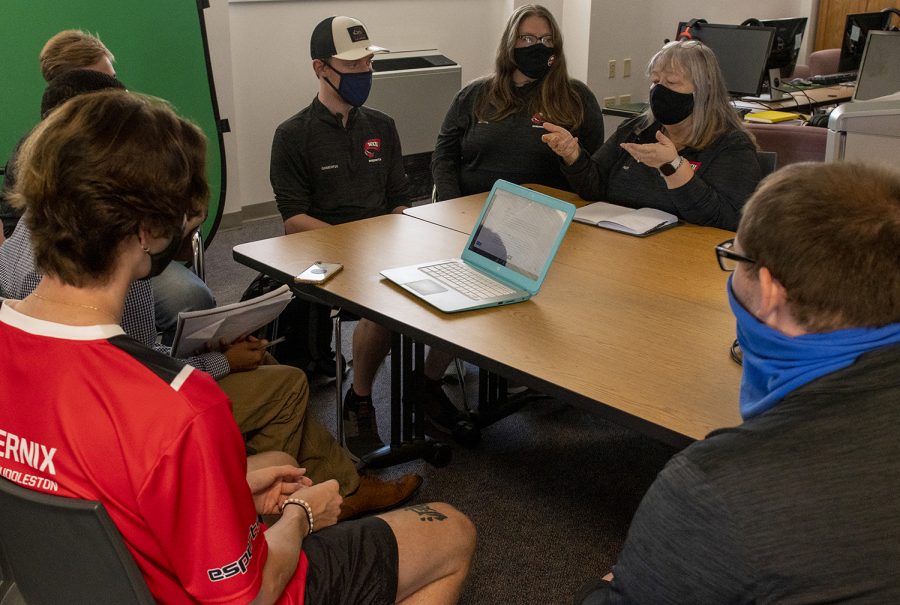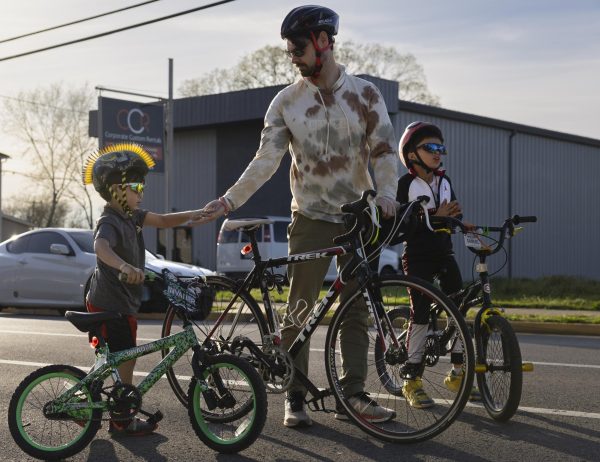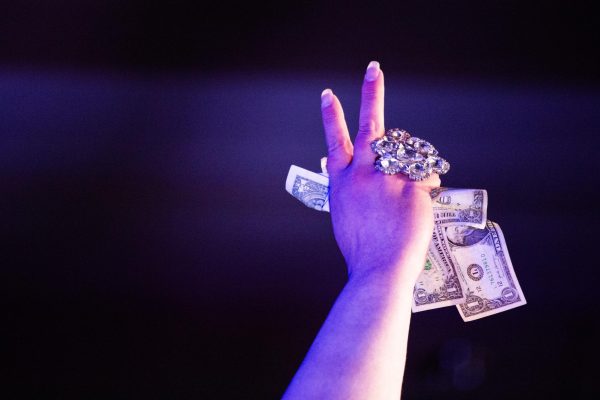WKU esports athletes seeking recognition on the Hill
The coaches and advisor for the esports team at WKU are interviewed in their gaming room on the side of McCormack Hall.
October 25, 2021
Esports athletes face grueling schedules, strategizing sessions and must represent their school just like their collegiate athlete peers.
Despite these similarities, the NCAA declined to include esports under its athletic umbrella back in 2019. Jessica Manrow, a graduate assistant for WKU’s varsity esports program, feels the team has done more than enough to earn that athletic respect.
“They are representatives of the university and they are athletes,” Manrow said. “We are athletes. I think that it would be really nice if people within the program got that recognition.”
The program was created in 2016 with the help of the Student Government Association. Former WKU President Gary Ransdell approved the SGA’s petition and the team was born. According to esports faculty advisor and program co-founder Patricia Todd, the program got its humble start inside a closet in the now-demolished Garrett Conference Center with just six players and one game, League of Legends.
Despite a less-than-glamorous start, the program grew quickly.
“We were happy when we got the computers and it was like a dream come true when we finally got jerseys,” Todd said. “We had t-shirts but we have been fighting for recognition in the university since 2016. I think this past year has been one of the first times that I felt like we had it.”
Fast-forward to 2021, the team has grown exponentially. It now claims about 50 members, all of whom are on scholarship, competing across four different games and working with four coaches for each. League of Legends, Overwatch, Valorant and Rocket League make up the diverse selection of games the program competes in as a team.
Gaming is a multi-billion dollar business, and Todd believes there are plenty of employment opportunities in the field. Despite this, the roster as a whole feels that esports is not represented the same way as other major sports.
“The challenge is, outside of the esports industry, not everybody understands what [esports] is,” Todd said. “They don’t understand what these guys do when they are playing in a tournament. They’re stressed as much as any athlete would be. The professional esports teams have conditioning coaches, they have psychologists, they have counselors. They have everything just as they would in a traditional athletic setting.”
Ben Frivvell, the broadcaster for the program, feels esports is underrepresented despite the fact that games are accessible to anyone that has a computer or cell phone.
Frivvell believes the viewership of major esport events indicates a shift in the entertainment market. Esport competitions routinely pull in massive amounts of viewers that rival professional sporting events. For instance, 43 million people tuned in to the 2016 League of Legends Championship. Only 31 million viewers watched game seven of that year’s NBA Finals.
“The fact that these esports are getting double to triple the amount of viewers and almost more money than these big sporting events suggests [that] esports is the new wave of the future,” Frivvell said.

With all this being said, a gamer can’t just put on a pair of headphones, grab a mouse and keyboard and start earning millions of dollars from playing video games. Scott Nelson, a coach for WKU’s Rocket League team, outlined that a key component in reaching a professional level of play in an esport is the sheer time commitment.
“I think another big factor in reaching a competitive level in esports is the commitment that it takes,” Nelson said. “There’s a point, a skill cap, that you’ll reach playing casually. A lot of people don’t have the motivation to push higher.”
Gaming is a non-contact sport and is very fast paced. Contrary to other D1 sports, esports athletes are not allowed to call timeouts. With this rule in place, they are constantly making adjustments, creating stressful situations for the players.
Tucker Huddleston, a coach for WKU’s Valorant team, believes burnout is a challenge players face that casual fans may not expect.
“There always comes that point where you’re down so much it’s just so easy to give up,” Huddleston said. “But you can’t, you have to just keep going. You have to keep communicating…It’s easy to stop talking and to shut down [and] just assume that it’s over, but a lot of the best victories come from when you shake those feelings off and make that comeback.”
Gaming may not seem like a very stressful activity, but matches can become more heated than many people realize. WKU’s League of Legends coach Garret Holley explained that keeping a level head is one of the most challenging aspects of esports.
“It varies from esport to esport, but as far as the League of Legends team is concerned, we can’t call timeouts,” Holley said. “[In] football, you can get your three timeouts. Baseball, you have your time between innings. We are constantly working on audibles. It makes the situations a lot more fast- paced and a lot more stressful for the players… There’s a high level of stress that is maintained for long periods of time while competing.”
WKU’s varsity esports team is at the forefront of trying to establish competitive gaming as a legitimate sport and is inclusive to everyone. Competitive gaming has fostered a community for those who don’t fit the typical athlete mold.
“It’s something that, no matter who you are, where you come from, you can all play the same game and have a fun time enjoying [it] together,” Frivvel said.
Women’s basketball reporter Joseph Thompson can be reached at [email protected].

























